To be complete, I also analyzed the “Wills/Bys” in the McCain and Obama acceptance speeches, to teach out the content of their words on the issues important to them. I find the substance quotient,
SQ = 1/2 * (N_wills + N_bys)/N_issues
to be:
- McCain: 0.45
- Obama: 0.82
I had to make some judgement calls on these speeches, as it was hard to separate a speech device from a “will” at times. For instance, Obama makes statements like, “We may not agree on abortion, but surely we can agree on reducing the number of unwanted pregnancies in this country,” it implies a policy “will” – an Obama administration will work to reduce the number of unwanted pregnancies. Removing these grey areas (there were four in the Obama speech: unwanted pregnancy, the second amendment, immigration, and gay and lesbian rights) reduces Obama from 0.82 to 0.73.
I also counted McCain’s statement:
We’ll produce more energy at home. We will drill new wells off-shore, and we’ll drill them now. We’ll drill them now . . . we’ll build more nuclear power plants . . . We’ll develop clean-coal technology. We’ll increase the use of wind, tide, solar, and natural gas. We’ll encourage the development and use of flex-fuel, hybrid and electric automobiles. [2]
as “wills”, not “bys”, since he didn’t lay out policy measures to accomplish them. This is in contrast to Palin, where I counted a similar statement as implying “bys”. In the end, because of the way the quotient is constructed, it doesn’t affect her score and only affects the interpretation of statements like this.
I also had to add two new issues categories to McCain, since he made statements about domestic and foreign policy which didn’t fit neatly into national security, or ethics reform. This increased his denominator, adding more issues at the cost of having not addressed others he lists on his website.
Here is my original accounting:
What jumped out at me was the range of issues important to the candidate and how well they were covered. With the addition of “reaching across the aisle by hiring democrats and independents” and “establishing good relations with Russia and building foundations for a lasting peace”, McCain raised his issues count from 18 to 20. However, he said or implies “wills” on only 6/20 issues, leading to an issue coverage of just 30%. Obama, on the other hand, covered 13/22 issues without adding new ones to the list, for 59% issue coverage.
Having an SQ of 1 or greater is preferable, and neither candidate achieved that. But, in the end, Obama came a lot closer.
[1] http://www.demconvention.com/barack-obama/
[2] John McCain Acceptance Speech

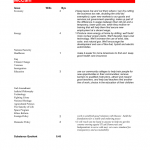
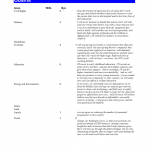
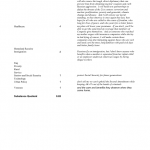


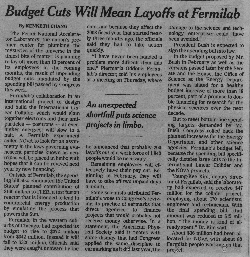
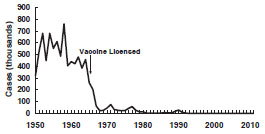
2 thoughts on “Substance Quotients on McCain and Obama”
It would be interesting to find someone favoring McCain (perhaps I am unfairly presuming that you already favor a specific candidate) and have them do a similar analysis. While it certainly seems like this is an objective criteria, would others’ evaluations vary? Would a McCain supporter object to this evaluation (without knowing this result) and would they similarly score Obama above McCain?
I admire your analysis, but I wonder what the error bars are.
I would be VERY interested in a person more inclined to McCain doing the same thing, though I must confess off-hand I don’t think I know anybody. Even some of my more conservative relatives dislike McCain enough to want to vote the “Mickey-Donald” ticket this November.
I have been tracking the issues positions of both candidates on specific topics – technology, education, science – for months, in the hopes of clarifying my own feelings for the both of them. While I am inclined toward Obama, I don’t dismiss McCain and his positions. In fact, I feel that Republican-controlled Congress’ and Presidencies have historically been more kind to the areas of research I do, while I feel that Democrats are open to it but clearly have higher social priorities than science. The latter reflects a mis-understanding about the broad applicability and relevance of science to all aspects of life.
Believing there is no way a single person can make unbiased judgements about whether a statement is a “will” containing a policy “by”, I tried to be very clear about my judgement calls. What is not possible to be clear about is whether I neglected to consider certain statements due to an inherent selection bias. That is, I cannot quantify what I didn’t select, only what I did select and didn’t count as a “by”. You’ll note the only place I decided to *remove* data from a calculation was in Obama’s more vague, potential policy statements about reproductive rights, immigration, etc. Those were the issues that would reduce Obama from a SQ of 0.82 to 0.73.
Let’s consider quantitatively how biased I would have to be in order to have given McCain the score I assigned him. For instance, how many “wills+bys” would have to be added (regardless of whether they were a “will” or a “by”) to make McCain’s score the same as Obama’s?
This is easy. McCain had 20 issues. In order to get a score of 0.73, he would have needed 29 “wills + bys”. His score was 0.45, which means I assigned him 18 “wills + bys”. That’s a difference of about 11 “wills + bys”. In other words, I would have had to have consciously or unconsciously missed 11 such items from his speech.
Turning the question around, I can ask what selection bias would be required to RAISE Obama’s score from 0.45 to 0.73. In order to have biased UP Obama’s score to 0.73, from a score equal to McCain’s, I would have to have added 12 “wills + bys” to his score, consciously or unconsciously.
One could split the difference, and assume that these are really equally matched candidates on their issues. Then their scores were really equal and somewhere in between 0.73 and 0.45 – let’s split the difference, and call it 0.59. How many issues would I have to add to Obama to take him to 0.73? The answer is 6. And how many to drag down McCain from 0.59 to 0.45? The answer is also 6.
Absent a McCain-inclined person, and absent a way of assigning uncertainty to a single person’s judgement, you have to ask: how biased would I have to be to have misappropriated 6-12 issues for either of them? That’s a big gap. I’m skeptical of my judgement, but it sounds like I’d have to be borderline foolish to mis-assign so many.
And that significant selection bias would have to have occurred in two different pairs of speeches. For the record, I read Palin’s speech first, then Biden’s. I read Obama’s speech before McCain’s. I tried to mix up the order, so I went into each speech potentially biased in the opposite direction.
I’d love to have a McCain-inclined person try this out.